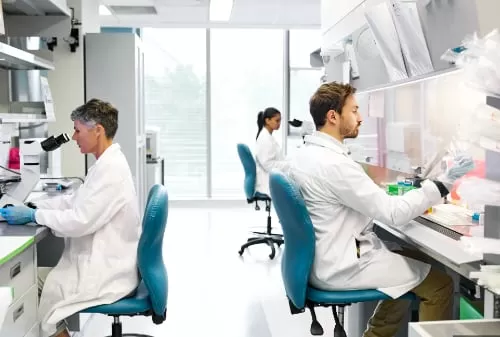Related searches

As we see a surge in healthcare needs, particularly in light of recent global health crises, Medical Programs have evolved to address the diverse needs of the population. Whether it’s through expanded Medicaid, Medicare Advantage, or private insurance options, Medical Programs continue to adapt in order to meet the demands of the American people. The future of healthcare in the U.S. hinges on these programs, ensuring that individuals from all walks of life have access to the care they need.
How Medical Programs Are Supporting Mental Health in America
Mental health has been a growing concern in the United States, especially with the onset of the COVID-19 pandemic. Medical Programs are increasingly focusing on mental health services to address the widespread challenges that individuals face. Many government-funded and private Medical Programs now include mental health support as a core component, offering resources for therapy, counseling, and psychiatric care.
The integration of mental health services into Medical Programs is crucial, as it helps to reduce stigma and increase access to care. With the rising awareness of mental health issues, these programs are becoming more important than ever in ensuring that Americans have the necessary support to maintain their mental and emotional well-being.
How Recent Legislation Is Shaping Medical Programs in the U.S.
In recent months, Congress has passed legislation aimed at expanding and improving Medical Programs to ensure more Americans have access to high-quality healthcare. Key changes in the law have focused on increasing funding for Medical Programs, improving access to prescription medications, and reducing out-of-pocket costs for those enrolled in government-assisted plans.
As the U.S. continues to navigate complex healthcare challenges, these legislative efforts signal a commitment to strengthening the healthcare infrastructure. The continued evolution of Medical Programs is essential to creating a more equitable and accessible healthcare system for all Americans.
The Role of Telemedicine in Modern Medical Programs
Telemedicine has become a game-changer in the delivery of healthcare, particularly in Medical Programs. With the rise of virtual consultations, Medical Programs are leveraging technology to provide care in a more flexible and convenient manner. This innovation has been especially beneficial during the pandemic, as many Americans turned to telehealth services to receive medical advice without the risk of exposure to COVID-19.
The integration of telemedicine into Medical Programs is likely to continue growing, with more providers offering virtual visits for a range of services, from routine checkups to specialized care. This has been a lifeline for individuals living in rural areas or for those who have limited access to traditional healthcare facilities.
Looking Ahead: The Future of Medical Programs in the U.S.
As we look ahead, Medical Programs are poised to play an even more pivotal role in shaping the future of healthcare in the United States. With an aging population, rising healthcare needs, and increasing demand for efficient, accessible care, the expansion of Medical Programs will continue to be a top priority for policymakers. By embracing innovation, such as the use of AI and telemedicine, and ensuring that Medical Programs are inclusive and equitable, the U.S. can create a more sustainable healthcare system that benefits all citizens.
In conclusion, Medical Programs remain essential in addressing the current and future healthcare needs of Americans. From mental health support to legislative advancements, these programs are evolving to meet the diverse needs of the population. As we continue to navigate an ever-changing healthcare landscape, Medical Programs will be at the forefront of ensuring that everyone has access to the care they need to live healthy and fulfilling lives.
 How to Publish Your Own Book: A Comprehensive Guide
How to Publish Your Own Book: A Comprehensive Guide Strengthening Your Business: The Importance of Robust Business Security
Strengthening Your Business: The Importance of Robust Business Security Finding the Right Senior Living Community Near You
Finding the Right Senior Living Community Near You 7 Top Meal Delivery Services for Easy and Delicious Meals
7 Top Meal Delivery Services for Easy and Delicious Meals Experience the Ultimate in Relaxation with Exclusive Luxury Swim Spa Services
Experience the Ultimate in Relaxation with Exclusive Luxury Swim Spa Services



